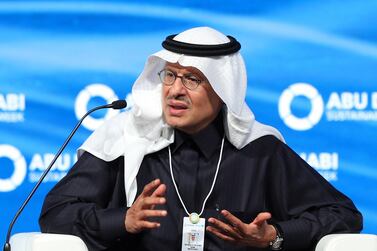Saudi Arabia, the world's largest oil exporter, plans to use solar energy to desalinate water in the planned $500 billion (Dh1.8 trillion) sustainable city of Neom.
The "solar dome", which consists of an array of mirrors, will focus solar radiation on its glass and steel structure to heat seawater. Once it evaporates and precipitates as freshwater, it will then be discharged through outlets to reservoirs and irrigation channels, Neom said on Wednesday. The plant will not produce carbon emissions and create less brine than facilities using conventional reverse osmosis technology.
The company has partnered with London-based Solar Water to adopt the clean technology for desalination. The solar dome plants will also process drinking water more cheaply than conventional plants, at 34 cents per cubic metre, Neom said.
#NEOM adopts @SolarWaterPLC pioneering technology to produce low-cost, environmentally friendly fresh water. The pilot "Solar Dome" project promises to revolutionize water desalination, helping solve one of the world’s most pressing problems –access to fresh water. #DiscoverNEOM pic.twitter.com/QwsHAHybZL
— NEOM (@NEOM) January 29, 2020
The Middle East has an estimated 2 per cent of the world's renewable water supply, with much of the demand being met through multi-billion dollar desalination projects. The region accounts for nearly half of all desalination capacity globally as it lacks access to fresh water because of its arid and desert landscape, with minimal rainfall and depleting ground water sources.
Producers in the Gulf largely use reverse osmosis, a membrane-based method of desalination, which uses less energy compared with the thermal process of producing fresh water. However, this activity is still highly energy intensive, with the region's fossil fuel producers expending much of their hydrocarbon resources towards desalination. Abu Dhabi has previously piloted renewable desalination schemes, while private developers in Saudi Arabia such as Abdul Latif Jameel also mooted plans to develop carbon-neutral facilities.
Saudi Arabia is pursuing an ambitious renewable power strategy and plans to add 60 gigawatts of clean energy capacity to the national grid by 2030.








